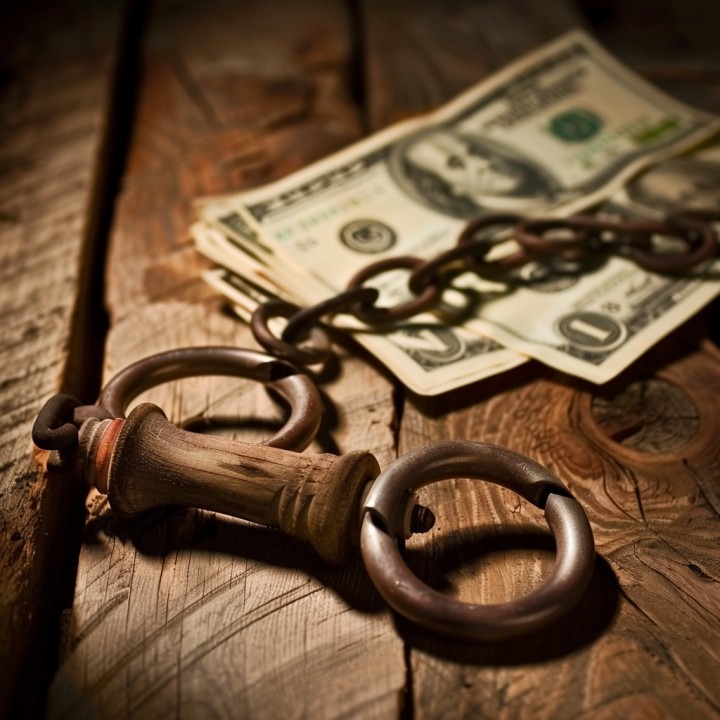Introduction
Navigating the complexities of the juvenile justice system can be daunting, especially when it involves juvenile bail. This article provides a thorough exploration of juvenile bail, covering every aspect from the basics to the intricate legal implications. By understanding juvenile bail, parents, guardians, and legal professionals can make informed decisions and better support the young individuals involved.
What is Juvenile Bail?
Juvenile bail refers to the conditional release of a minor from detention, pending their court appearance. Unlike adult bail, the juvenile system focuses more on rehabilitation than punishment. The conditions of bail are set to ensure the minor’s attendance in court and their compliance with legal and social responsibilities.
Introduction to Juvenile Bail
Definition and Purpose
Juvenile bail is a legal mechanism designed to ensure that a minor, who has been accused of committing a crime, appears in court for their trial while remaining out of detention. The primary purpose of juvenile bail is to balance the legal presumption of innocence until proven guilty with the need to ensure public safety and the minor’s attendance in court.
Differences from Adult Bail
While both adult and juvenile bail serve the purpose of guaranteeing court appearances, juvenile bail is distinct in its focus. The juvenile justice system emphasizes rehabilitation and the best interests of the minor over punitive measures. Consequently, the conditions and considerations for juvenile bail often reflect this rehabilitative focus.
Eligibility for Juvenile Bail
Age Criteria
Eligibility for juvenile bail typically depends on the age of the accused. Generally, individuals under 18 years old are considered juveniles. However, the exact age criteria can vary by jurisdiction.
Types of Offenses
The nature of the offense plays a significant role in determining eligibility for juvenile bail. Serious offenses such as violent crimes may result in stricter bail conditions or denial of bail, while minor offenses may allow for more lenient conditions.
First-Time Offenders
First-time offenders are often granted more favorable bail conditions compared to repeat offenders. The justice system tends to give first-time offenders an opportunity to reform, reflecting the rehabilitative ethos of juvenile law.
Repeat Offenders
Repeat offenders might face stricter bail conditions or even denial of bail due to the perceived higher risk of reoffending or not appearing in court. Their past record heavily influences the bail decision.
Types of Juvenile Bail
Unsecured Bail
Unsecured bail allows the juvenile to be released without any upfront payment. However, a monetary amount is set, which must be paid if the juvenile fails to appear in court.
Secured Bail
Secured bail requires a monetary payment or property as collateral to ensure the juvenile’s court appearance. This type of bail is more common in cases involving serious offenses.
Conditional Release
Conditional release involves setting specific conditions that the juvenile must adhere to while out on bail. These conditions can include curfews, attendance at school, or participation in counseling programs.
No Bail
In certain severe cases, juveniles may be denied bail altogether, resulting in their detention until the court date. This decision is typically made if the court believes the juvenile poses a significant risk to themselves or the community.
The Bail Hearing Process
Initial Detention
When a juvenile is arrested, they are usually placed in a detention facility pending a bail hearing. This initial detention aims to assess the situation and prepare for the hearing.
Hearing Schedule
Bail hearings for juveniles are generally scheduled promptly to minimize the time a minor spends in detention. The timing can vary depending on the jurisdiction and the nature of the offense.
Legal Representation
Juveniles are entitled to legal representation during the bail hearing. An attorney can advocate for the minor’s release and argue for reasonable bail conditions, ensuring the juvenile’s rights are protected.
Factors Considered by Judges
Judges consider several factors when deciding on juvenile bail, including the severity of the offense, the juvenile’s past record, family support, and the likelihood of the juvenile appearing in court. The primary focus is on the best interests of the juvenile and public safety.
Conditions of Juvenile Bail
Attendance at School
One common condition of juvenile bail is regular attendance at school. Ensuring the juvenile remains engaged in their education is crucial for their development and rehabilitation.
Curfews
Curfews are often imposed to limit the juvenile’s activities during certain hours, reducing the risk of reoffending and ensuring they are home during critical times.
Regular Check-ins
Juveniles may be required to check in regularly with a probation officer or other court-appointed authority. These check-ins help monitor the juvenile’s compliance with bail conditions.
No Contact Orders
In cases involving victims, juveniles may be subject to no contact orders, preventing them from interacting with the victim or any co-defendants. This condition aims to protect the victim and prevent further incidents.
Counseling Requirements
Counseling or participation in specific programs may be mandated as a condition of bail. These programs can address underlying issues such as substance abuse or behavioral problems, contributing to the juvenile’s rehabilitation.
Legal Rights of Juveniles
Right to Legal Counsel
Juveniles have the right to legal counsel during all stages of the bail process. Access to an attorney ensures that their rights are upheld and that they receive a fair hearing.
Right to a Fair Hearing
A fair hearing is a fundamental right for juveniles. This means that the bail hearing should be impartial, and the juvenile’s case should be considered with all relevant evidence and circumstances.
Right to Appeal Bail Decisions
If bail is denied or the conditions are deemed too stringent, juveniles have the right to appeal the decision. An appellate court can review the case and potentially alter the bail conditions.
Role of Parents and Guardians
Legal Responsibilities
Parents and guardians play a crucial role in the juvenile bail process. They are often responsible for ensuring that the juvenile adheres to bail conditions and attends all court appearances.
Support Systems
Providing emotional and practical support to the juvenile can significantly impact their rehabilitation and compliance with bail conditions. Strong family support is essential for successful outcomes.
Ensuring Compliance with Bail Conditions
Parents and guardians must actively ensure that the juvenile follows all bail conditions. This involvement helps prevent violations and supports the juvenile’s path to reform.
Consequences of Bail Violations
Penalties for Non-Compliance
Violating bail conditions can result in severe penalties, including immediate detention, additional charges, and a more stringent bail process for future offenses.
Impact on Future Bail Decisions
A history of bail violations can negatively impact future bail decisions. Courts may be less inclined to grant bail or may impose stricter conditions if the juvenile has a record of non-compliance.
Legal Repercussions
Legal repercussions for bail violations can extend beyond the immediate case, affecting the juvenile’s criminal record and future opportunities. It is crucial to understand and adhere to all bail conditions.
Rehabilitation vs. Punishment
Focus on Rehabilitation
The juvenile justice system prioritizes rehabilitation over punishment. The goal is to help juveniles reform and reintegrate into society as responsible individuals.
Programs and Services
Various programs and services are available to support the rehabilitation of juveniles. These include counseling, educational support, and community service opportunities.
Comparison with Adult System
Unlike the adult system, which often emphasizes punishment, the juvenile system is designed to address the developmental needs of minors and promote positive change.
Case Studies
Examples of Juvenile Bail Cases
Reviewing case studies of juvenile bail cases provides valuable insights into how different factors influence bail decisions and outcomes.
Lessons Learned
Analyzing past cases can highlight best practices and common pitfalls in the juvenile bail process, offering guidance for future cases.
Outcomes
Understanding the outcomes of various juvenile bail cases helps illustrate the effectiveness of different bail conditions and rehabilitation efforts.
Juvenile Detention Centers
Conditions and Environment
Juvenile detention centers are designed to provide a safe and supportive environment for detained minors. Conditions typically include educational and recreational facilities.
Differences from Adult Prisons
Unlike adult prisons, juvenile detention centers focus on education, rehabilitation, and the overall well-being of the minors. The aim is to create a conducive environment for positive change.
Role in the Juvenile Justice System
Detention centers play a critical role in the juvenile justice system by providing temporary housing for juveniles awaiting court decisions and offering programs to support their rehabilitation.
Bail Reform Movements
Recent Changes
Recent bail reform movements have advocated for more lenient and fair bail practices, particularly for juveniles. These reforms aim to reduce unnecessary detention and support the rights of minors.
Advocacy for Juvenile Rights
Advocacy groups work tirelessly to promote the rights of juveniles within the justice system, pushing for policies that prioritize rehabilitation over detention.
Impact on the Bail System
Bail reforms have significantly impacted the juvenile justice system, leading to more equitable practices and better support for juveniles and their families.
Frequently Asked Questions
What is the purpose of juvenile bail?
Juvenile bail ensures that minors accused of crimes appear in court while allowing them to remain out of detention, balancing legal presumption of innocence with public safety.
How does juvenile bail differ from adult bail?
Juvenile bail focuses more on rehabilitation and the best interests of the minor, whereas adult bail often emphasizes ensuring court appearances and public safety.
What factors do judges consider in juvenile bail hearings?
Judges consider the severity of the offense, the juvenile’s past record, family support, and the likelihood of the juvenile appearing in court.
What are common conditions of juvenile bail?
Common conditions include regular school attendance, curfews, regular check-ins, no contact orders, and counseling requirements.
What happens if a juvenile violates bail conditions?
Violations can lead to immediate detention, additional charges, and stricter future bail conditions, impacting the juvenile’s record and opportunities.
How do bail reform movements affect juvenile bail?
Bail reform movements advocate for fairer bail practices, reducing unnecessary detention, and emphasizing rehabilitation over punishment.
Conclusion
Understanding juvenile bail is essential for navigating the juvenile justice system effectively. By focusing on rehabilitation and the best interests of minors, the juvenile bail process aims to support positive outcomes for young individuals. Through informed decisions and strong support systems, juveniles can be guided towards a better future while ensuring compliance with legal obligations.



